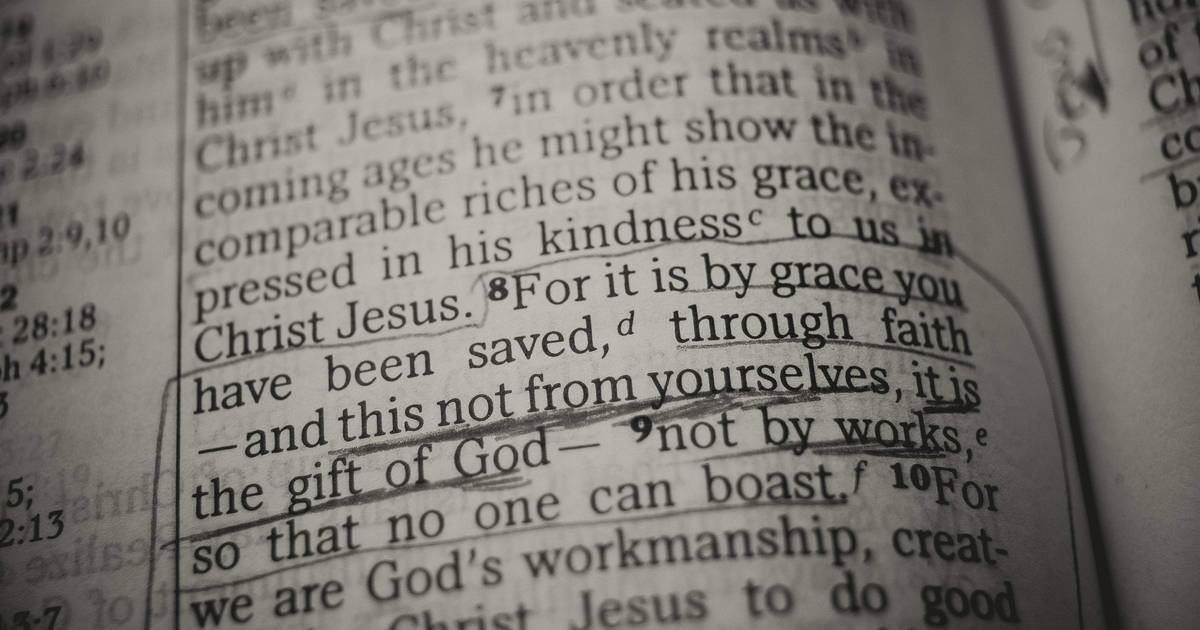I suppose I could be on dangerous ground here, but I’ve been thinking about this a lot and have been eager to “write it out,” (which is how I work through ideas in my mind). I’ve been thinking about why some people don’t become Christians. Why is it that some people aren’t saved even though they had an opportunity to be?
As an adherent to Reformed theology I have an easy answer: the Holy Spirit has not yet regenerated them, so the one who must move first has not yet moved. That is certainly true, but it is not the whole story. When it comes to turning to Christ in repentance and faith, the sovereignty of God in salvation does not negate the moral responsibility of the individual. As Christians we are to call all people to turn to Christ and be saved, and God will hold those accountable who do not. So why don’t they?
Lately I’ve had quite a few opportunities to share the gospel with strangers, most of them Uber or taxi drivers (Uber is the best way to the airport and taxi is the best way back). It’s a half-hour drive, and I’ve been doing my best to use that time to tell the drivers about Jesus. Here’s an interesting phenomenon: 100% of the Uber drivers who have taken me to the airport have been Muslim and 100% of the taxi drivers who have taken me home have been Sikh. Some have been devout and some lax, but every one of them has been very glad to allow the conversation to be steered to matters of faith. In every case I’ve seen my challenge as introducing the concept of grace contra their commitment to works. Besides that, I’ve had some other opportunities to speak with unbelievers or to advise believers who are attempting to share the gospel with friends and family. And it has made me wonder: With all of this evangelism and all these opportunities for salvation, why don’t people become Christians? Here are a few reasons I’ve observed in recent interactions.
They don’t stop talking long enough to listen. I have noticed this with a surprising number of people. They have told me the worst possible news—that our future state depends upon doing enough good deeds to balance out all the bad ones. Meanwhile, I’ve got the best possible news—that they can give up that impossible pursuit and, by grace, receive the merits of what Christ has already done. But they won’t listen. In fact, they won’t stop talking long enough for me to tell them that. And when I try to get a word in edgewise, they cut me off and talk even more. What should be an exchange of ideas and information becomes a one-way torrent and they never get to hear the news that could change their lives. Perhaps they aren’t Christians because they won’t stop talking long enough to hear the news that could transform them.
They won’t overcome the social/cultural pressure. I expect we have all seen examples of this. Those of us who grew up in Christian homes and churches felt pressure to become Christians and knew there would be social and cultural benefits to doing so. In fact, we sometimes even slow down or caution our kids to ensure their profession is true rather than just a means of pleasing parents and pastors. But for some people, the social and cultural pressure works in the opposite direction and they know there will be a heavy cost to their salvation. They may lose friends or be disowned by family. They hear the good news and consider it, but deem the cost too high. They remain unsaved.
They love their favorite sin too much. We all have favorite sins, what some have referred to as “besetting sins.” These tend to be sins we cling to tightly, even as they make us increasingly miserable. The call to obey Christ is a call to put aside such sins and to find a deeper satisfaction in Christ and in obedience to him. Some, and perhaps especially those who find their identity in their sin, will not turn from it. They may hear and weigh the benefits of the gospel, but in the end decide their favorite sin is too precious. They remain unsaved because they refuse to surrender a lesser pleasure they know for a greater one they’ve been promised.
Their friends or family nag them relentlessly. And then there is this one. There has to be a line between fervency and nagging in our evangelism. We must share the gospel with others, but we must also stop short of nagging and cajoling. Our pleas for their souls can eventually become so persistent and insistent that they probably reveal some deficiency in us, some lack of trust or confidence in the goodness and sovereignty of God. There is a time to plead, but also a time to leave, a time to bear down and a time to ease up. Even as we grieve their hardness, we can have confidence in God’s sovereign goodness and await a moment that is opportune rather than overbearing.
All of these, and many more I’m sure, fall under the different kinds of seed and soil we read about in Matthew 13. As you think about your recent evangelism, what are some reasons you’ve observed why people do not become Christians?









